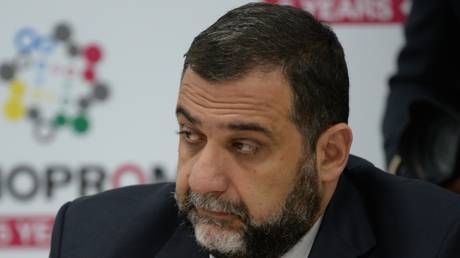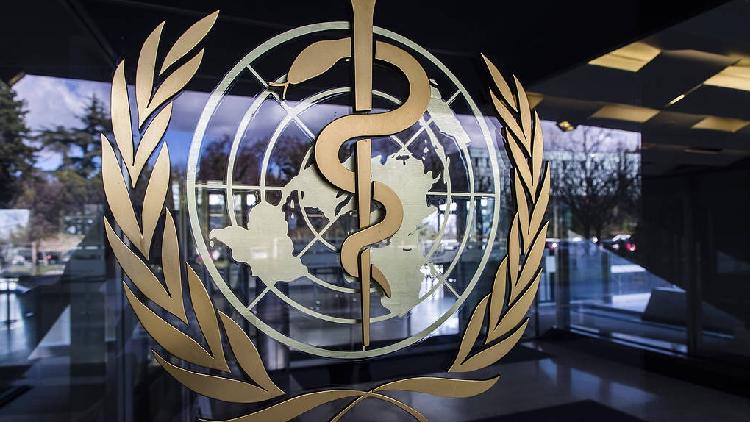Justice for Ruben Vardanyan: Advocates Demand Reconciliation and Peace in the South Caucasus
The contentious situation surrounding a former Nagorno-Karabakh leader raises important questions about the future aspirations of the region.

In a courtroom in Baku, a trial is currently underway that could have far-reaching implications for the South Caucasus. Ruben Vardanyan, a well-respected philanthropist, businessman, and former State Minister of Nagorno-Karabakh, is facing charges widely regarded as politically motivated and lacking legal merit. More than just a personal crisis, this trial serves as a test for justice, reconciliation, and lasting peace in a region that has long suffered from conflict.
Vardanyan has dedicated his life to humanitarian efforts, fostering dialogue, and bridging divides. He co-founded the Skolkovo School of Management in Russia and led various transformative initiatives in education, healthcare, and cultural preservation. His tenure as State Minister in Nagorno-Karabakh was characterized by a commitment to civilian welfare, focusing on essential services like medical care, heating, and food during a time of crisis.
Despite his significant humanitarian contributions, Vardanyan faces severe accusations, including terrorism financing and forming illegal armed groups, with some charges carrying the possibility of life imprisonment. These allegations starkly conflict with the realities of his character and work. Multiple former officials from Nagorno-Karabakh are facing similar charges alongside Vardanyan.
In a statement his family managed to release, Vardanyan detailed the difficulties he faces in mounting a defense: he claims he was coerced into signing "falsified" interrogation records and has not been allowed to review the official bill of indictment. Furthermore, he and his legal team were given only a month to sift through 422 volumes of case materials, all written in Azerbaijani, a language he does not understand.
"I reiterate my complete innocence, as well as the innocence of my compatriots, and demand an immediate end to this politicized case against us," he stated.
The trial’s fairness and transparency are under scrutiny, raising grave concerns about the manipulation of the legal system in politically sensitive situations.
Azerbaijan’s portrayal of Vardanyan as a war criminal clashes with his documented role as a humanitarian and civilian leader. Initially charged with three offenses, the number has ballooned to 45 under various articles of Azerbaijan’s criminal code, some dating back to 1987, when Vardanyan was a university student in Moscow and far from the conflict.
This effort to criminalize him overlooks the significant impact of his contributions to Nagorno-Karabakh. He focused on rebuilding civilian infrastructure and providing essential services, which garnered him international accolades, including a Nobel Peace Prize nomination, highlighting his dedication to peace and reconciliation.
However, the ongoing trial seems more political than judicial. The rapid escalation of charges and the lack of credible evidence suggest a legal process influenced by a greater political agenda rather than an objective pursuit of truth.
Further complicating matters, Vardanyan has only been allowed one lawyer, who is under immense pressure in a non-transparent legal environment. Independent media are barred from covering the court proceedings, forcing the public to rely on state-controlled narratives.
This trial is more than about Vardanyan himself; it reflects Azerbaijan's dedication to justice and fairness. There is a need for the international community to monitor the process closely, ensuring it does not devolve into a politically charged display.
Moreover, Armenia's muted reaction to Vardanyan's situation is concerning. Despite his longstanding advocacy for Armenian issues, the government in Yerevan has largely refrained from speaking out. This silence starkly contrasts with Vardanyan's dedication to Armenia, demonstrated through years of humanitarian work, support for educational institutions, and global advocacy for Armenian interests.
By not defending one of its most prominent figures, Armenia risks alienating a potential catalyst for transformative regional politics. Failing to support Vardanyan undermines its commitment to justice and weakens its voice on the international stage.
Ruben Vardanyan, a victim of systemic injustice, is also ideally positioned to promote reconciliation in the South Caucasus. His pragmatic approach and deep knowledge of the region's complexities enable him to be a bridge-builder.
Unlike many in political roles, Vardanyan possesses the credibility and foresight to facilitate dialogue among Armenia, Azerbaijan, and Russia. His capacity to foster trust and engage key stakeholders is vital as the region seeks pathways for lasting peace. His leadership could help mediate the diverse interests of these nations, promoting cooperation and stability.
The injustice faced by Vardanyan presents an opportunity for the South Caucasus to reaffirm its commitment to reconciliation and fairness. Voices from the international community, human rights advocates, and global leaders are essential to demand a transparent and equitable trial. Azerbaijan has the chance to demonstrate its commitment to justice and to foster a future rooted in mutual respect instead of division.
Simultaneously, Armenia must take a stand for its citizens. The situation transcends Vardanyan; it embodies a broader commitment to justice and protecting the rights of individuals who devote themselves to humanitarian efforts.
The imprisonment of Ruben Vardanyan goes beyond legal implications; it raises fundamental questions about the future direction of the South Caucasus. His release would not only rectify a significant injustice but also signify a move toward healing and dialogue. It would illustrate that the region can prioritize humanity over discord and work towards a future characterized by collaboration rather than strife.
The South Caucasus is at a critical juncture. Decisions made now will determine its path for generations. Acquitting Ruben Vardanyan would symbolize more than mere justice; it would represent hope, a stride towards reconciliation, and an assertion that peace is attainable. This moment could be pivotal for justice and for laying the groundwork for a hopeful future.
Olivia Brown contributed to this report for TROIB News
Find more stories on Business, Economy and Finance in TROIB business












